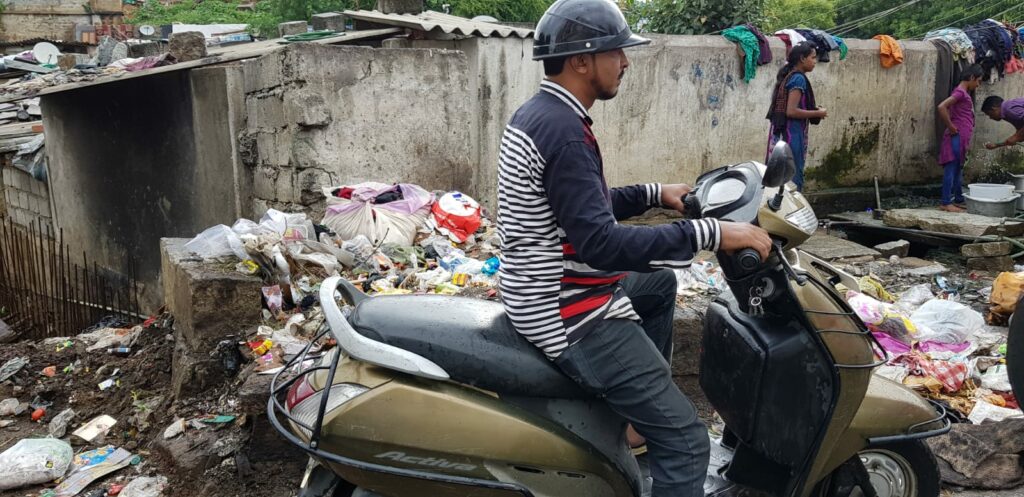“If only it were all so simple! If only there were evil people somewhere insidiously committing evil deeds, and it were necessary only to separate them from the rest of us and destroy them. But the line dividing good and evil cuts through the heart of every human being.” ― Aleksandr I. Solzhenitsyn, The Gulag Archipelago 1918-1956
\\\”We are a depraved, lawless and shameless society, ask what is wrong with us?\\\” – Kiran Majumdar Shaw, Chairman & MD, Biocon Ltd
\\\”Patriotism is supporting your country all of the time …. and your government when it deserves it\\\” – Mark Twain
No woman is certain of her safety in India, anywhere in the country – not in the womb, nor in her family, nor at her place of work, in infancy, youth or even old age.
Anybody willing to bet how many among the angry male hordes who protest in India for violence against women will go home to assault a sister in law, or harass a wife or violate a vulnerable female? 2015 saw the registration of 34,651 cases of rape in India, but this increased to 38,947 in 2016. Conversely, overall crimes against women rose from 3,29,243 in 2015 to 3,38,954 in 2016.
And how many vociferous women in the crowds will remain brainwashed, mindlessly believing that the men in their lives must be worshipped because of religion and tradition, thereby perpetuating the macho male myth and control? India\\\’s media periodically focuses on the rage against assault and rape. Behind TV news campaigns is the notion that television has the power – and responsibility to galvanise people.
It does.
But in India, criminals are not ostracised, they are elected to political office and the media and politicians view infrequent public outrage as a windfall they can milk to their advantage. Analysts say, Indian TV networks earn little or no profit due to fierce competition and the pursuit of high TRP ratings often overtakes ethical considerations. When it comes to sex, which is what rape campaigns are all about, a study of Indian TV ads and Bollywood themes, makes it clear that true social responsibility is a farce.
If you don\\\’t agree, did you watch Priyanka Chopra flaunt her buttocks in a skimpy outfit for an alcohol ad on TV? What was Ms Chopra who has been declared the ‘World’s Sexiest Asian Woman’ by a UK Asian newspaper, trying to communicate? That alcohol and sex go together? Buy that brand of booze and sexy women will try to lure you?
Increasingly, for our filmy, deluded, aspiring Indian audiences, semi-porn is accepted as something terribly sophisticated and stylish.
How can we pretend that our red blooded desi dudes should not be stimulated by free access to porn on the Internet and pumped up by our society\\\’s growing sexual assertiveness?
Official crime statistics for 2016 shows a woman was raped every 13 minutes; six women were gang-raped every day; a bride was murdered for dowry every 69 minutes; and 19 women were attacked with acid every month. It is certainly not the women who are to blame, but it is their greater vulnerability and susceptibility in a truth-castrated society gone mad, that they must be realistic about or pay the price.
We can demand that the imagination of louts in our society and their ‘stinking-thinking’ must change to nobler considerations, but that is secondary – as a priority, we must do something about it first. Does India’s media report or titillate? Education teach or indoctrinate? Religion lead to truth and harmony, or increase intolerance? Wholesome thinking cannot be created without an environment that encourages it.
English author C.S. Lewis observed in an essay titled, ‘First and Second Things,’ \\\”You can’t get second things by putting them first; you can get second things only by putting first things first.”
If India was not a barbaric, debauched society, Aamir Khan would not have chosen female foeticide for the first episode of his TV show Satyamev Jayate. The fact that five out of his first 13 episodes dealt with women and sex related issues, including female foeticide, child sexual abuse, dowry, honor killings, and domestic violence, tells its own tale.
The statistics and reports Aamir presented as testimonials were shocking:
- Female infanticide in India was actually started as a government scheme in the 1970s, during the population explosion in the country.
- Killing the foetus in the womb is a Rs 2,000-3,000 crore industry in India.
- In parts of India like Rajasthan, there are hordes of unmarried men because girls are being killed before or at birth. Consequently, young women are being ‘bought’ and ‘sold’ from other states for marriage, or forced sex by 4-5 men who cannot get a bride.
- Doctors use code words for sex determination in Gujarat – if it’s a boy, they say ‘Jai Shri Krishna’ and if it’s a girl, the words are ‘Jai Mata Di’.
- It is the educated and urban classes that indulge in female infanticide more than the rural/tribal areas.
A country that consistently elects and honours political hoodlums, where 37% of it parliamentarians have a criminal record, and an 873% hike in sexual crime has been recorded in the last decade, clearly does not have the right priorities.
Those of us not bound by mindless patriotism, can’t help but speculate whether India is worth returning to. NRIs in the Arabian Gulf may not have the advantage of procuring citizenship like NRIs in many other countries, but there are plenty of long term opportunities in the Diaspora for the enterprising. And I’m not being partial – if you choose to head back you will need to be far more intrepid in India! You must also be very clear why you are returning – to make a difference, however small, not just join the Great Indian Rat Race.
The United Nations has said India is the most dangerous place to be a girl – nearly one million girls are aborted every year. The 2011 census showed that for every 1,000 boys six years or younger, there were only 914 girls – the lowest child sex ratio since India\\\’s independence in 1947.
Vishwal Mangalwadi, author of ‘The Book That Made Your World,’ tells a gruesome tale about the value of a girl child in India. In 1976 Vishal and his wife Ruth left urban India to live with the rural poor in the village of Gatheora in Madhya Pradesh. They came across a family deliberately starving one of their daughters – 18 month old Sheela. Ruth asked the mother what was wrong and was told, “Oh, she doesn’t eat anything.”
“Why don’t you take her to the hospital?” asked Ruth.
“Where is the time to go to the hospital?” she replied.
“Your daughter is dying and you have no time to take her to the hospital?”
“I have three other children and a husband to look after.”
Ruth offered to pay the expenses and was told, “Oh we don’t want to get into debt.” When Ruth assured the family it was a gift not a loan, she was told, “We don’t have the time, why are you bothering us?”
Vishal asked them bluntly, “Are you killing this girl?”
“Of course not! But what can we do if she won’t eat and vomits everything we give her?”
“If you can’t do anything for her, then why don’t you let the doctors do something?” insisted Vishal.
“Because we can’t afford it,” came the brazen reply.
Finally Vishal threatened to go to the police and wily neighbours of the cruel parents pointed out that they might end up paying for hospital expenses if the police were informed, so it was better to accept Vishal’s offer.
Thus Sheela was admitted in the care of doctors and rapidly recovered to the delight of all, but it didn’t last long.
Her mother came complaining one morning, “The village folk are saying that you are corrupting our daughter. If she eats in your home, our caste will be polluted.” They took her home and before the Mangalwadis knew it, Sheela was dead.
Vishal writes, “Sheela’s parents starved her to death because for them she was a liability. They already had one daughter to look after their two sons and clean and cook for the family. A second girl was an unnecessary burden.”
The fact is, truth will prevail only if we seek it as the pearl of infinite price we are willing to give up everything for. In a country that worships wealth, the Vedas caution us: “Unless we do not renounce our greed we cannot protect truth. Untruth inhibits self-development and physical, mental and spiritual growth.”
The evil casually displayed by the parents of a helpless girl child prevails because of a certain worldview accepted in our superstitious, caste ridden society. That same mind-set explains why women are brutally assaulted every few minutes and mass upheavals make little difference.
Such a way of life is radically opposed to the truth and freedom that Indians desperately need, if India is ever to become a humane, liberated society.
Frank Raj is the author and founder of ‘Desh Aur Diaspora.’


